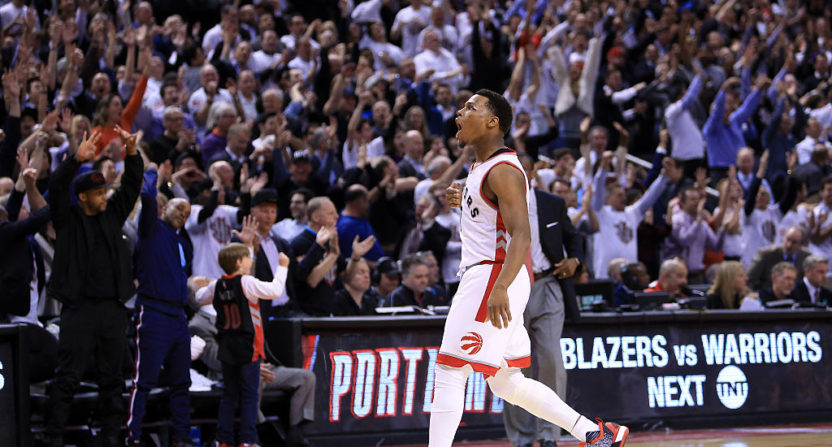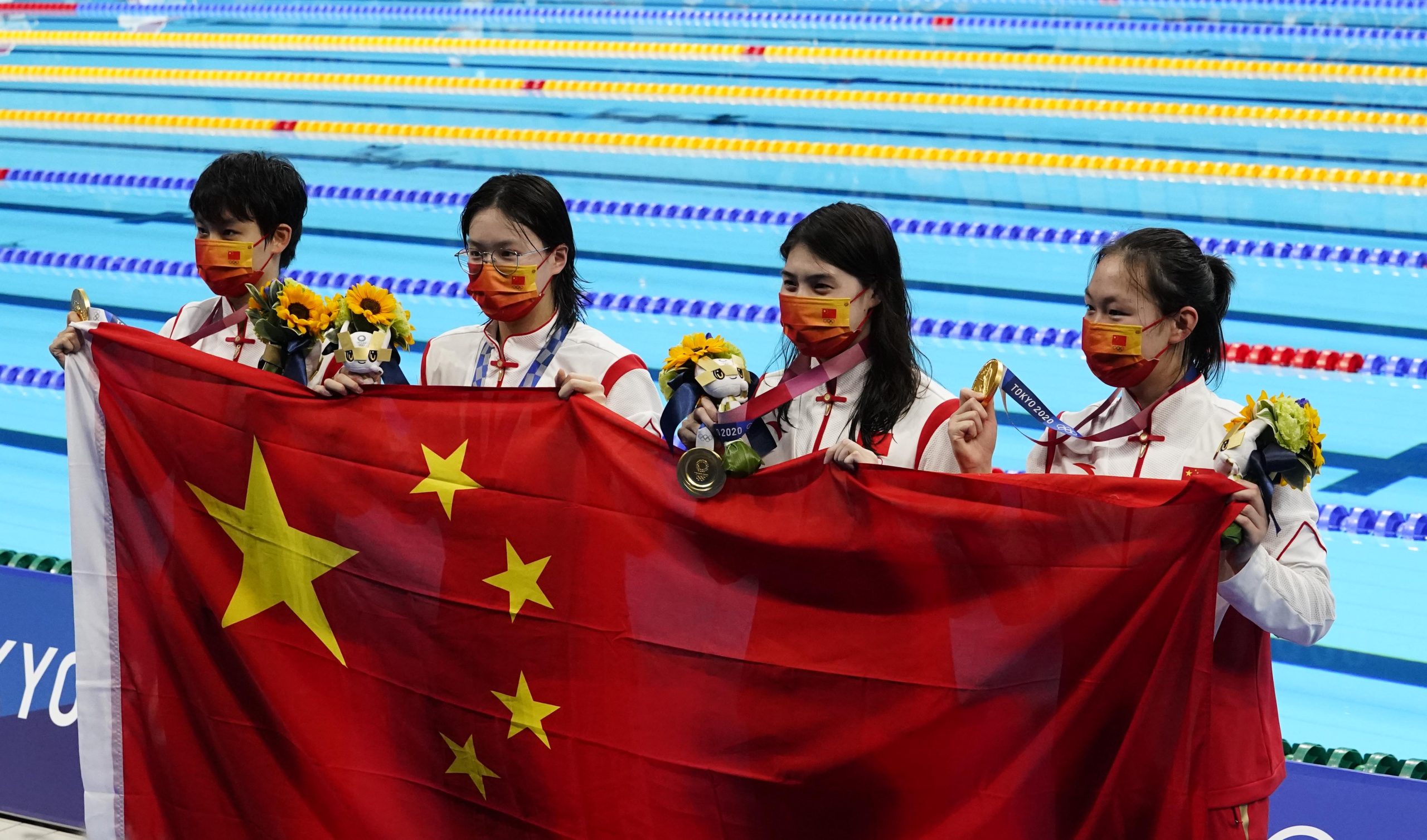The Toronto Raptors have ventured down a similar path for three straight seasons: Regular season success, followed by playoff disappointment. After back-to-back postseason losses to the Eastern Conference juggernaut Cleveland Cavaliers, team president Masai Ujiri faced a tough question this offseason: Do the Raptors continue down a good-not-great path, or look to the future and start over?
Ujiri chose both options, but in keeping the team competitive via free agency, he faced hurdles.
Star point guard Kyle Lowry was an unrestricted free agent who, at 31, wasn’t going to get much better than he currently is. Meanwhile, power forward Serge Ibaka, 27, acquired mid-season in a deal with the Orlando Magic, also hit the market as a big-time free agent. Both players seemed destined for five-year, massive extensions — a max deal in Lowry’s case. Giving out those type of deals would hurt the Raptors long-term to appease the short-term. Instead of choosing one or the other, Ujiri worked his magic.
— Kyle Lowry (@Klow7) July 2, 2017
Ujiri signed Lowry and Ibaka to three-year deals, worth $65 million and $100 million, respectively. The high per season average supplemented the length of the contracts. Signing the duo to five-year deals would give the Raptors no flexibility in case bringing the band back together didn’t work out. Now, there’s a three-year window in place for those players.
Re-signing the two was the Raptors’ biggest priority. Alongside all-star guard DeMar DeRozan, Ibaka and Lowry represented a big three-light in T.O. But Ujiri still had work to do.
Cleaning out cap room was another priority, but a challenge with Toronto needing to continue adding talent. Ujiri gave up two assets, a first- and a second-round pick to move DeMarre Carroll’s albatross of a contract (Ujiri’s biggest mistake as GM of the Raptors) to Brooklyn in exchange for cap space. He then opted to trade backup point guard Cory Joseph to the Indiana Pacers for three-and-D guard C.J. Miles, adding much-needed spacing to the team. Somehow, Ujiri improved the club without adding to its cap.
Another good move for the Raps. Delon Wright should be ready for backup PG role. CJ Miles is good, needed uptick in 3-point shooting.
— Zach Lowe (@ZachLowe_NBA) July 9, 2017
The whole time, while making sure the present day starters were a competitive group, Ujiri and the Raptors front office also thought about the future. Toronto could afford to trade Joseph because Delon Wright and Fred VanVleet, two point guards developed by the Raptors, could step in and take his role. The organization, despite recent success, has done an excellent job scoring young talent in Wright, VanVleet, guard Norm Powell, center Jakob Poeltl and forward Pascal Siakam. Smartly, the Raptors’ cupboard isn’t bare beyond its big three.
But what remains to be seen is whether the Raptors’ core can compete with the Cavaliers. Ujiri is pretty much Basketball Management Jesus, as he’s practically turned water into wine (See Andrea Bargnani trade) before. However, Lowry and DeRozan both don’t have the star power to take down a LeBron or a Golden State Warriors. In order to compete, Toronto will need to fill out its roster seamlessly while counting on not just regular season success, but luck.
The next three years will prove whether this group has what it takes to win the title. If the Raptors haven’t won anything once Lowry and Ibaka’s contracts are over, it’s the perfect signal to rebuild the whole thing and try again. In the present, the Ujiri and Toronto will go for it without sacrificing the future.







